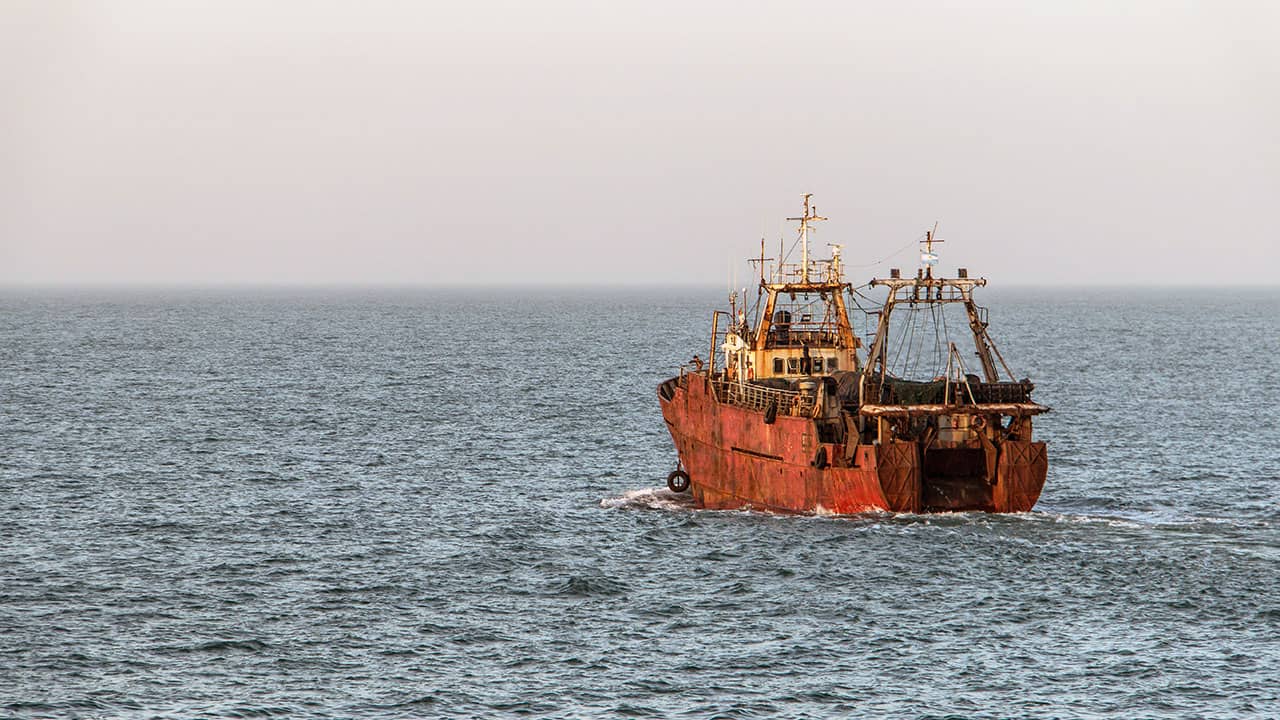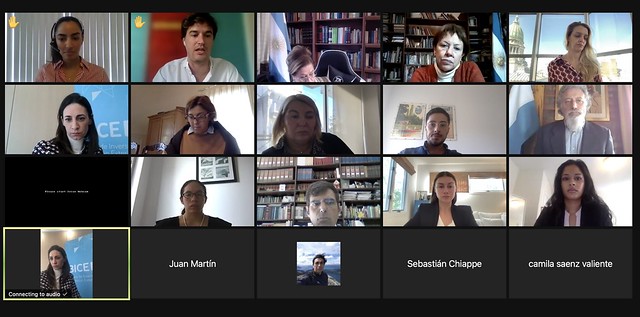
The Argentinian National Group of Parliamentarians for Global Action continues to join efforts to ratify the Cape Town Agreement to eradicate Illegal, Unreported and Unregulated Fishing
On August 26, 2021, the Argentinian National Group of Parliamentarians for Global Action (PGA) met, within the framework of the Campaign for the Protection of the Oceans, for an informational session to discuss the role of the International Maritime Organization’s Cape Town Agreement (CTA) in strengthening maritime governance and security to protect vulnerable fishing populations during the COVID-19 pandemic.
Opening the event, Chair of the National Group, Deputy Carla Piccolomini, gave a general overview of the work that the National Group has been carrying out in this matter, highlighting the notorious impact that illegal, unreported, and unregulated (IUU) fishing has on various areas. It is in the environment, maritime ecosystems, society and the economy – not only at the global level, but also at the local level.
In this regard, Deputy Graciela Camaño, in her capacity as a Member of the Permanent Commission on Natural Resources and Conservation of the Human Environment of the Chamber of Deputies, stressed that, for decades, many governments have incorrectly considered the Oceans as self-sufficient "systems" with the ability to make mankind's waste disappear. Unfortunately, this view drastically contributed to the collapsing maritime ecosystem and reduced marine prosperity, which has affected the lives of thousands of people who depend on it.
In this context, Deputy Camaño emphasized the benefits of CTA ratification for Argentina and the world, considering it improves the security of fishing vessels, the working conditions of its crew, protects the environment, and establishes fundamental guidelines that provide practical guidance for fishing communities. She stressed, however, that despite the existence of a solid regulatory framework established by the CTA and other international conventions, many governments erroneously apply their guidelines. This means ratifying and implementing the provisions of said instruments is of vital importance. Similarly, and to close her speech, Deputy Camaño affirmed that Argentina's ratification of the CTA would be in complete alignment with the Constitution, would not contravene any of its principles, and would be a critical advance to accompany international efforts in the matter.
For her part, guest speaker Ms. Tahiana Fajardo Vargas, Senior Associate of The Pew Charitable Trusts, provided the parliamentarians present with a global overview of the role that her organization plays in the eradication of IUU fishing and the regulatory framework, applicability, scope and the importance of the CTA. Likewise, Ms. Fajardo echoed the points made by Deputy Camano and emphasized once again the importance of adhering to this agreement and the benefits that its ratification would entail for Argentina. Among them, she highlighted that the entry into force of the CTA would constitute a laudable tool that would guarantee that vessels who carry Argentina’s flag are responsible for the safety of their crew, that security obligations are fulfilled, and that the fishing operations are conducted safely and legally.
Understanding that the ratification of an international treaty can imply a significant administrative and political burden, Ms. Fajardo offered the technical and legal assistance of her organization in cooperation with the technical support provided by PGA’s Oceans Campaign. For example, the creation of expert groups at the national and regional levels, the creation of virtual platforms, or hosting of round tables and discussions to achieve this objective. In the same way, she urged the legislators present to exercise their prerogatives in order not only to encourage the Executive, but also the competent Argentine authorities to carry out the pertinent actions to advance in the ratification of the CTA.
Following this, Deputy Camaño reported that, regarding the agreement, there is currently a bill in the Senate presented by Senator Silvana García Larraburu. However, she stressed that this project is one of many that have remained paralyzed. Deputy Camaño explained this is partially because legislators are not sufficiently informed about the far-reaching importance of the Oceans and the lack, or non-existent legislation, nationally and internationally on specific issues. To this end, the Deputy assured that her office will carry out the relevant actions needed to put the ratification of the CTA on the political agenda.
Furthering the conversation, Deputy Rosa Bertone urged her colleagues to support the ratification of the CTA since it would open large doors in the South Atlantic that would guarantee economic security for the country and for all those who work in the sector, with respect to the parameters and international standards in environmental matters. In turn, Dr. Javier García Espil, Advisor to Deputy Juan Manuel López, proposed that the members of the PGA National Group in Argentina approach other local institutions, such as the General Fisheries Council and other provincial entities, to generate a discussion that highlights the need to ratify the Agreement.
To end the session, Senator Alfredo Luenzo provided a reflection on the issues that were discussed during the meeting, placing special emphasis on the fact that, in Argentina, despite the valuable tools to prevent and fight against IUU fishing, there is a structural and cultural problem that sometimes prevents these vital issues from continuing on a positive course. In addition to this, the global pandemic that the countries of the world are facing has caused a considerable deterioration in the working conditions to which people living in the fishing sector are subjected, especially those vulnerable populations like migrant workers who often work under inhumane conditions. In this way, as indicated by the Senator, the ratification of the Cape Town Agreement will not only involve addressing a necessary and urgent human component that provides guarantees to these and other populations, but should also be an objective and commitment of the country.




